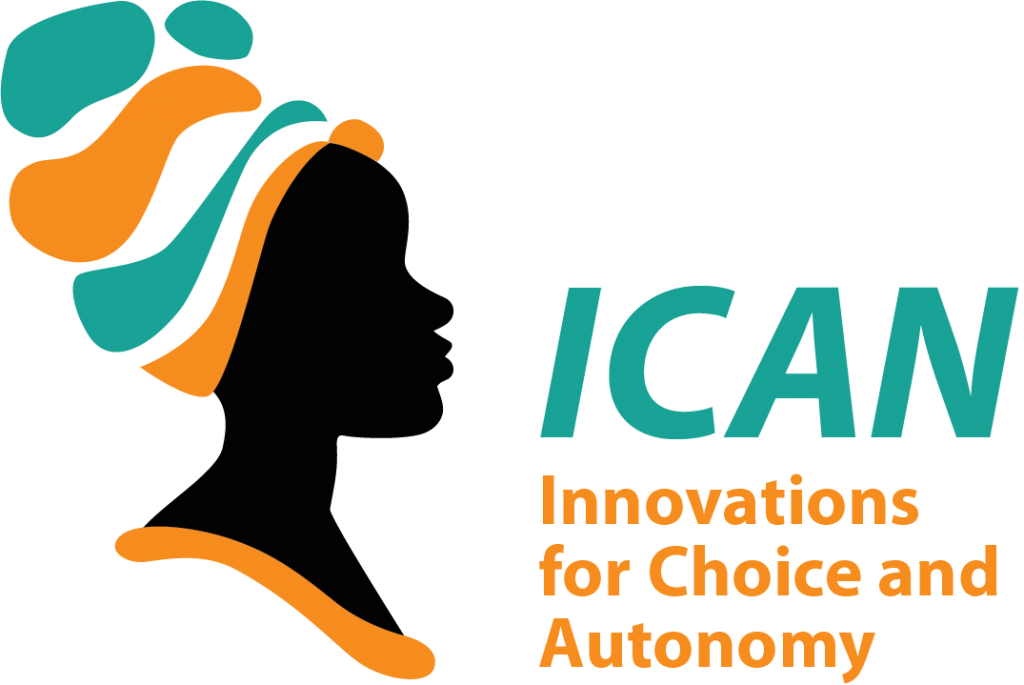Projects


Innovations for Choice and Autonomy (ICAN-), (2020 – 2023)
Method/Sample: Mixed method implementation research including mystery client interactions, IDIs, KIIs, quantitative cohort studies.
Location: Lagos, Plateau, Enugu
This project collaborates with the Federal and State Ministries of Health, Society for Family Health (IntegratE) and Association for Reproductive and Family Health (RASuDiN). It is designed to obtain a deeper understanding of how self-injection (SI) of DMPA-SC can be implemented to support informed contraceptive choice and use among women in Nigeria, Malawi, Kenya, and Uganda. It aims to:
Identify women’s interest in and preferences related to self-injection (SI) of DMPA-SC, including the women for whom SI may be empowering
Evaluate implementation approaches for introducing and supporting the use of SI (in the context of a full basket of contraceptive options) across public and private retail channels.
Develop a new measure of contraceptive autonomy (CA)–one’s ability to form consciousness of rights and act on contraceptive preferences—and characterize its relationship with DMPA-SC SI uptake and continuation.
Through the use of a variety of rigorous research methods and implementation science approaches over the course of four years, we will gain a better understanding of women’s contraceptive decision-making and identify promising approaches to help unlock the full potential of SI to meet women’s reproductive needs.

Re-examining Traditional Method Use (2020 – 2023)
Method/Sample: Qualitative – 65 IDIs, Quantitative – 3,695 Respondents
Location: Adamawa, Lagos
Of the 225 million sexually active women in low- and middle-income countries (LMIC) who annually express a desire not to fall pregnant, an estimated 65 million are using traditional methods of contraception (Sedgh et al, 2016). The reasons why women use traditional methods are rather complex. Programs need to understand if traditional methods users genuinely prefer such methods, are using them as they transition to modern methods, or if they are a replacement for modern methods because of fears of side effects and other structural barriers.
This project will advance our understanding of the true prevalence of traditional methods of contraception in four African countries as well as women’s motivations for using these methods. It will generate robust data for addressing the existing methodological and evidence gaps in traditional contraceptive use in DRC, Ghana, Kenya and Nigeria. Our focus is on women users of traditional methods of contraception

Assessment of Contraceptive use and exposure to an organisation’s mass media campaigns among Youth (2019 – 2020)
Method/Sample: Quantitative – 7,200 Respondents
Location: Ogun, Edo, Niger, Plateau
The 2015 and 2018 Nigeria Demographic and Health Survey (DHS) reported a persistently high Total Fertility Rate associated with high rates of teenage pregnancy, early marriage, low modern contraceptive prevalence, and high unmet need for family planning (FP) (National Population Commission [Nigeria] and ICF International 2014; 2019). Young women aged 15-24 years continue to have the lowest probability of using a modern method of contraception as compared with other age groups (PMA2020, Ankomah et al., 2011).
The study employed a cross-sectional, multi-stage sampling design to explore TCI program reach and monitor trends in ideational and behaviour change among randomly selected female and male youth using a structured questionnaire
